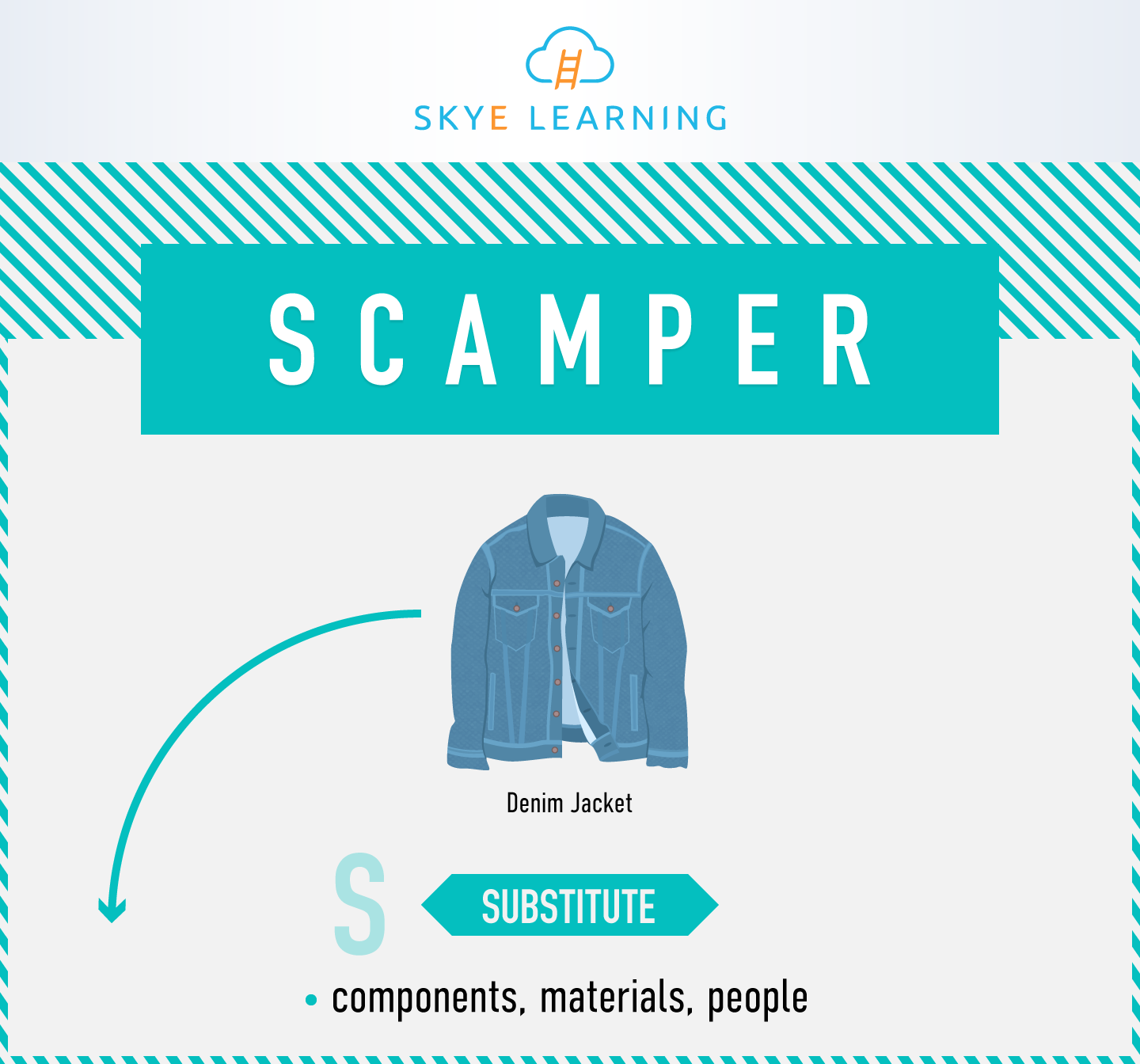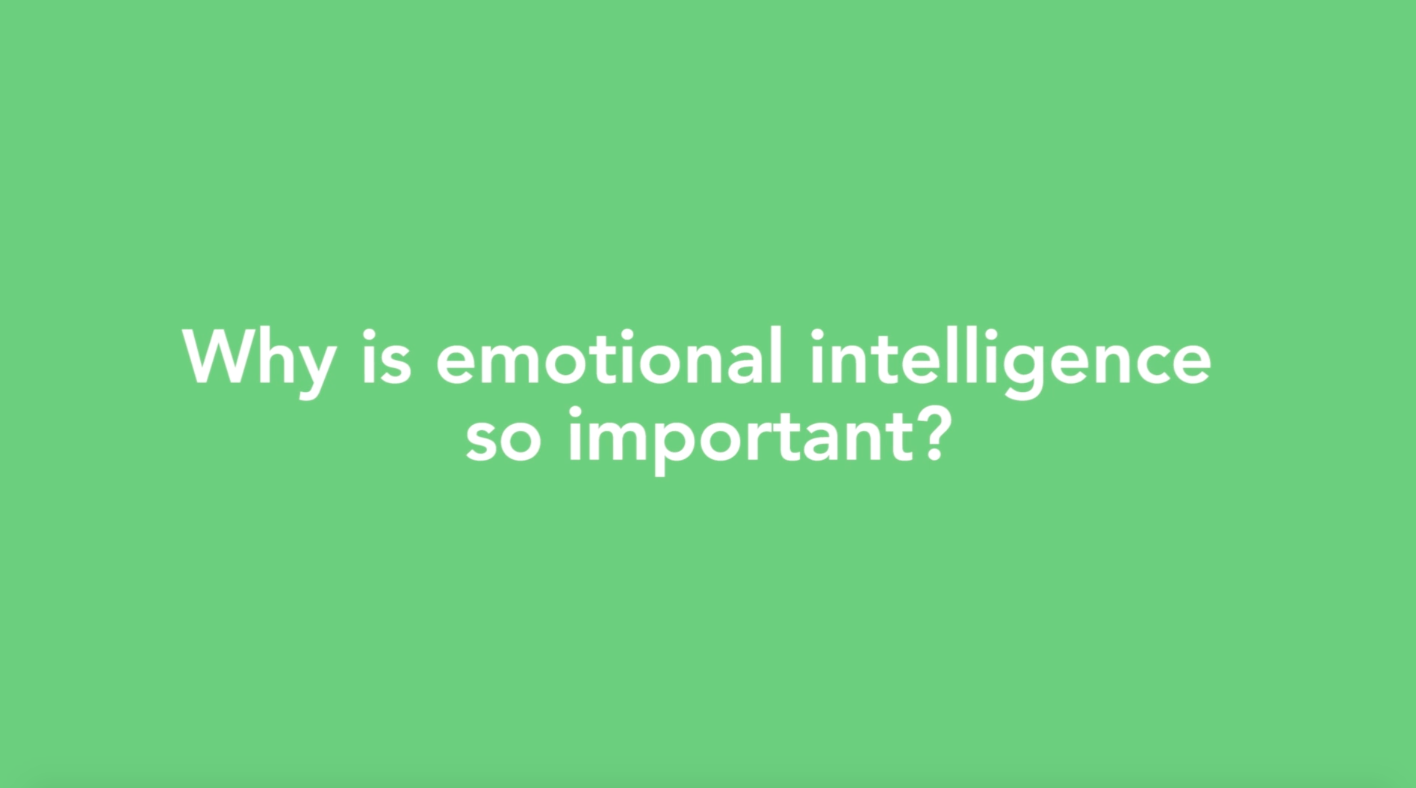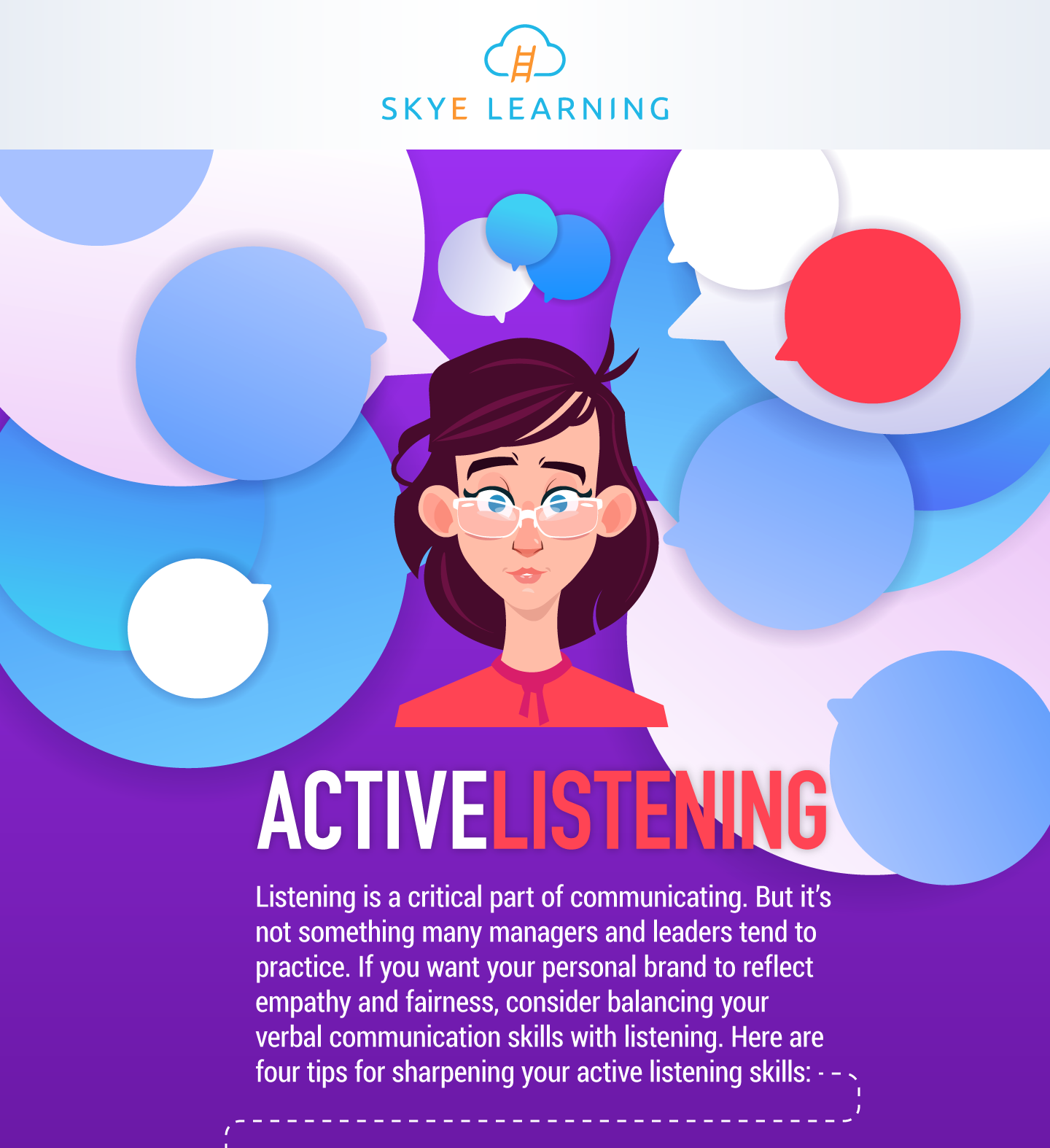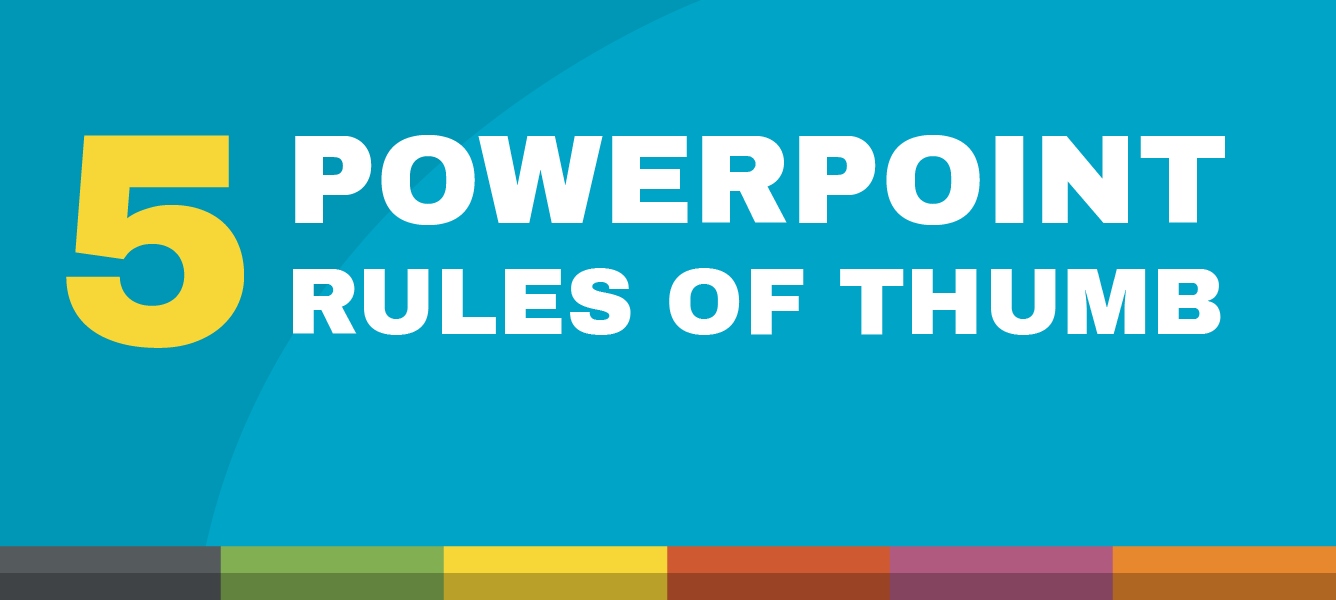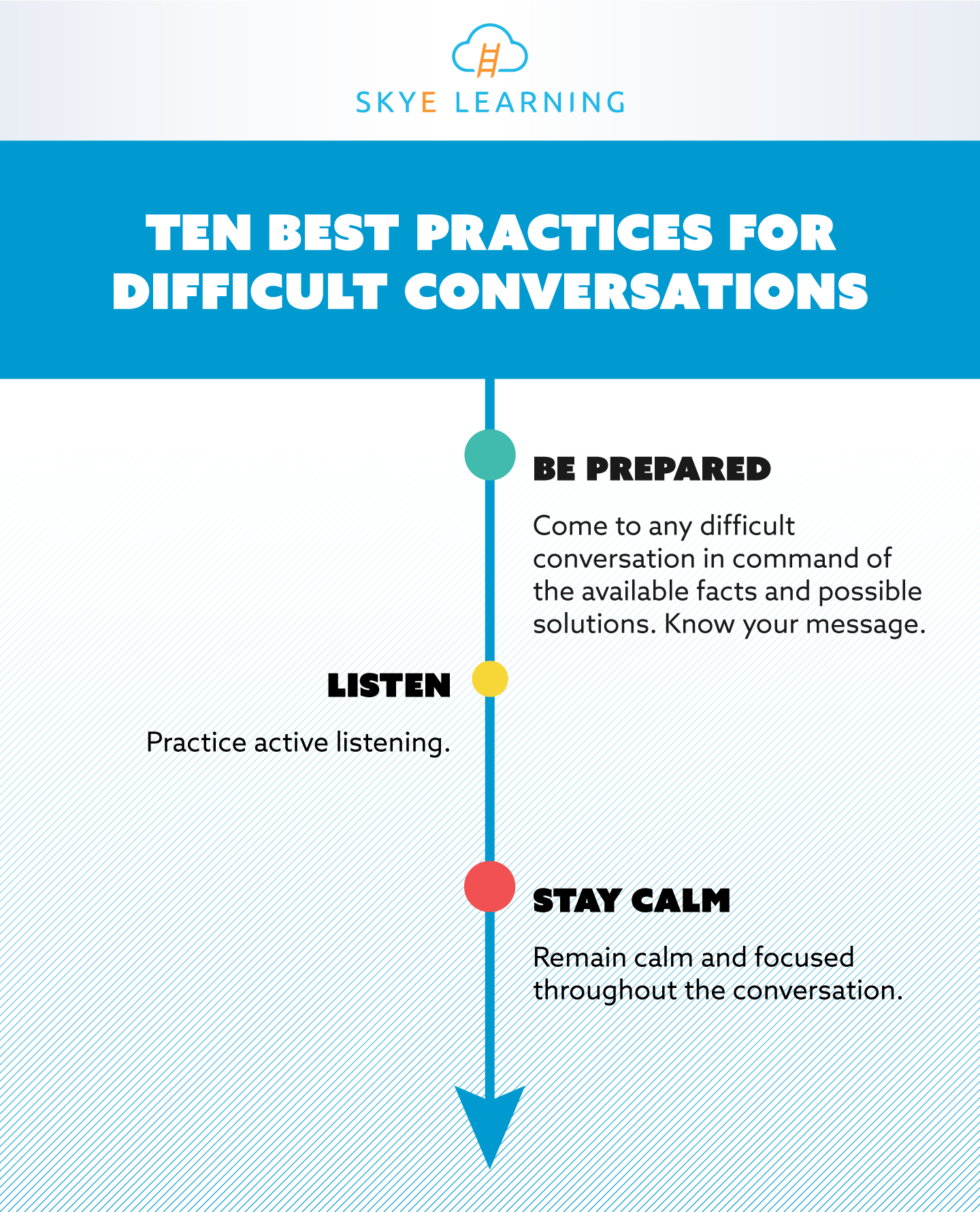The definition of work-life balance is different for each person, but at its core is the attempt to reconcile the tension between your professional obligations and the activities that provide personal fulfillment outside of work. Experts agree that personal fulfillment activities—including spending time with family, connecting with friends, pursuing hobbies, exercising, and meditating—should be built into your daily schedule in order to help increase feelings of overall satisfaction and happiness.
The Pursuit of Work-Life Balance: Tips for Avoiding Burnout
SCAMPER Method
There are several tools that managers can use to help foster creativity and innovation in teams. The SCAMPER method (Substitute, Combine, Adapt, Modify, Put, Eliminate, Reverse) can spur the creative brainstorming process by tasking team members to think outside the box and use their imaginations. Learn more about the SCAMPER method in our latest infographic.
Why Emotional Intelligence Matters
What are the most valuable skills in today’s workplace? Jackie Fernandes, director of IT compliance and data privacy officer for a major biotechnology company, says that emotional intelligence (EI) should be near the top of the list. Without sufficient EI, she says, workers won’t have the empathy, self-awareness, and communications skills needed to excel on the job. Fernandes makes the case in our latest Skye Learning video.
10 Tips to Combating Procrastination
I’ll get to it later.
How many times have you said those words in recent memory? Putting off tasks and assignments until the last minute is a commonly recognized habit of teenagers and college-aged students. But how prevalent is procrastination in adulthood?
Very prevalent, it turns out. Research has shown that 1 in 5 adults are chronic procrastinators. Whether it’s putting off filing your taxes, scheduling your annual physical, or responding to an email that’s been sitting in your inbox for weeks, procrastination can be a daily struggle that lasts well past your days as a student.
4 Tips to Sharpen Your Active Listening Skills
Communication is an integral part of business. However, we often focus on how to communicate verbally and forget to address nonverbal communication skills, including listening. Learning how to be an active listener can help you impart empathy and fairness in your professional and personal relationships. Improve your active listening skills with these four tips.
Why Negotiate?
There’s more to negotiation than just haggling over price. Successful negotiations can help you solve problems, preserve relationships, and avoid future conflicts. Our latest Skye Learning video explains how negotiation can make a big difference for your business.
5 PowerPoint Rules of Thumb
Is there anything worse than sitting in the audience during a presentation, as the speaker reads word-for-word from a series of PowerPoint slides? Does he really not understand that you can read the slides for yourself? Why not just print out a set of slides for everyone in the audience and let you all continue on with your day?
Using PowerPoint slides can actually be a wonderful enhancement to your presentation, but only if you know how to use them properly. Here are some basic rules to consider in order to keep your audience engaged.
Scrum's the Word - And Here's How It Works
Scrum is one of the most popular methods of agile project management, and it comes with its own specialized language: it's a universe filled with sprints and sashimi, scrum masters and product owners and user stories .Our latest Skye Learning video explains it all for you.
7 Tips for Delivering a Successful Speech
Do the words "public speaking" make you feel excited—or do they make you want to hide in a corner? For a select few, speaking in front of an audience can be a comfortable, even enjoyable, experience. But if delivering a speech or a presentation stirs up feelings of anxiety and doubt, just know that you are not alone. Comedian Jerry Seinfeld captured the prevalence of public-speaking anxiety in this famous quote:
"According to most studies, people's number one fear is public speaking. Number two is death. Death is number two. Does that sound right? This means to the average person, if you go to a funeral, you're better off in the casket than doing the eulogy."
10 Best Practices for Difficult Conversations
Effective communication is important in both your personal and professional life. Your conversations won’t always be easy, so how do you maneuver through the difficult and uncomfortable situations? Preparation is key. Check out our latest infographic for ten tips that will help you handle difficult conversations.





